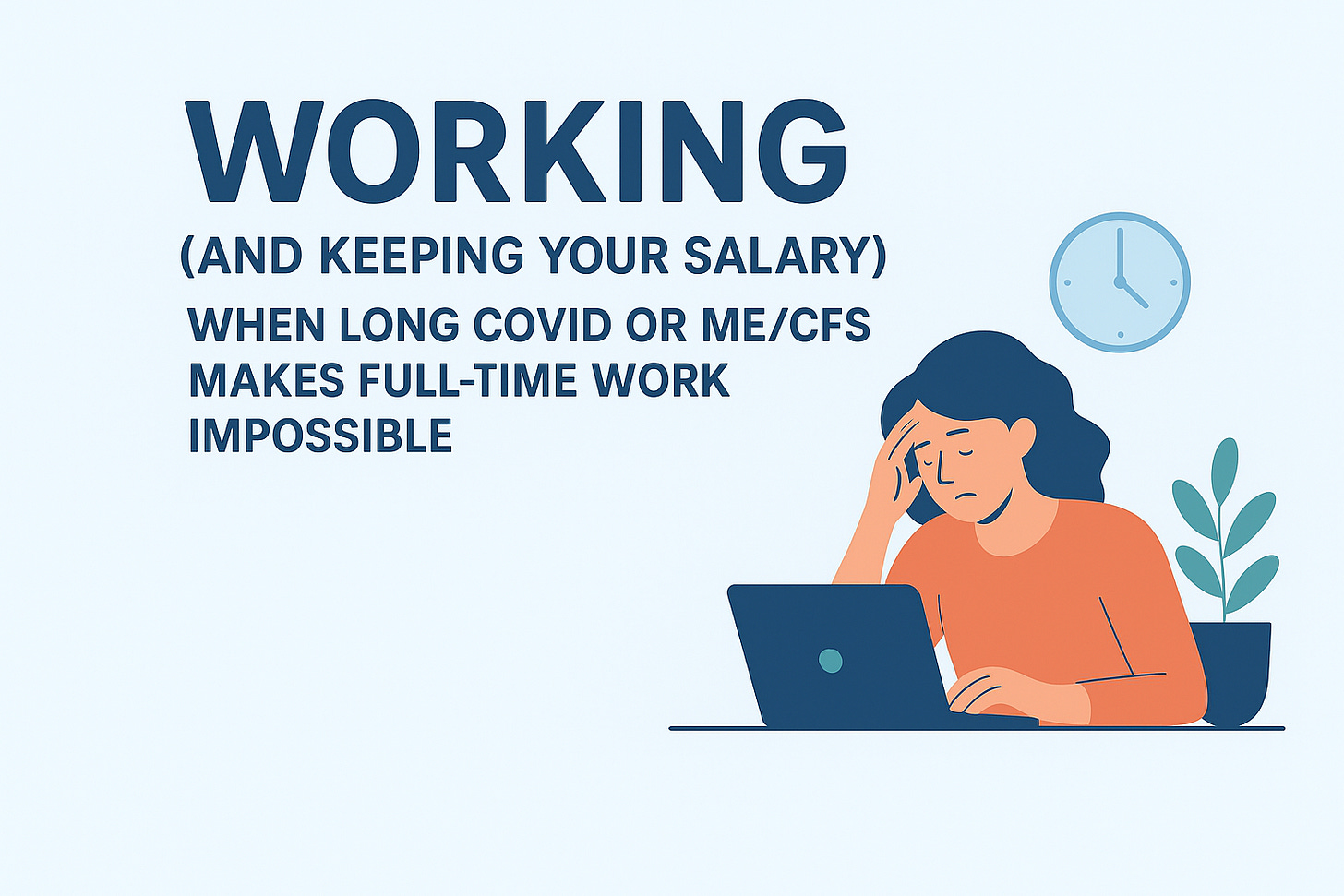Working (and Keeping Your Salary) When Long COVID or ME/CFS Makes Full-Time Work Impossible
1. Two Basic Truths
Long COVID and ME/CFS can severely limit work capacity. Fatigue, post-exertional malaise (PEM), “brain fog,” and other symptoms often make a full workday unsustainable.
The winning strategy is documentation + negotiation + flexible solutions. Collect medical evidence, engage your doctor or occupational health, and propose realistic adaptations to your employer.
2. Practical Steps for Patients
Gather medical documentation. Ask your doctor or specialist to write a report describing how symptoms limit your work (e.g., reduced hours, need for rest breaks, limits on physical/cognitive tasks).
Check your income options. Explore sick pay, state disability benefits (e.g., INPS in Italy, Employment Insurance in Canada, Social Security Disability in the US), private insurance, or long-term disability schemes.
Request a meeting with HR or occupational health. Present your situation and propose adaptations.
Use the principle of “reasonable adjustments.” Show how specific changes let you remain productive while reducing absences.
Seek support if negotiations fail. Contact a union, workers’ association, disability rights group, or legal advisor.
3. What Employers Can Offer
Reduced or protected part-time hours.
Hybrid / remote work. Essential for patients with fluctuating energy or brain fog.
Flexible scheduling and extra breaks. Helps manage energy peaks and cognitive load.
Task reallocation. Reduce or reassign physically/cognitively demanding work.
Assistive technology. Tools for speech-to-text, task planning, sensory overload reduction.
Gradual return-to-work plans. But beware: for Long COVID and ME/CFS, this usually needs to be much slower and more flexible than standard phased returns.
4. Legal and Policy Frameworks (By Country)
United Kingdom
Long COVID may qualify as a disability under the Equality Act 2010, giving the right to reasonable adjustments.
Support schemes: Access to Work grants, NHS post-COVID services.
🔗 ACAS – Long COVID advice
🔗 GOV.UK – Access to Work
United States
Covered under the Americans with Disabilities Act (ADA) if substantially limiting.
Rights to accommodations + protected leave (Family and Medical Leave Act, where applicable).
🔗 EEOC – Long COVID and ADA
🔗 HHS – Long COVID resources
Canada
Recognized as a disabling condition.
Supports include Employment Insurance sickness benefits, disability benefits, and accommodation duties under human rights law.
🔗 Government of Canada – Employment Insurance sickness benefits
Australia
Workers with a chronic condition can formally request flexible working arrangements under Fair Work law.
🔗 Fair Work Ombudsman – Flexible working arrangements
Italy
Managed through INPS (indennità di malattia, disability pensions, and “lavoratori fragili” protections).
In some cases, priority access to smart working is granted with medical certification.
🔗 INPS – Sickness benefits


